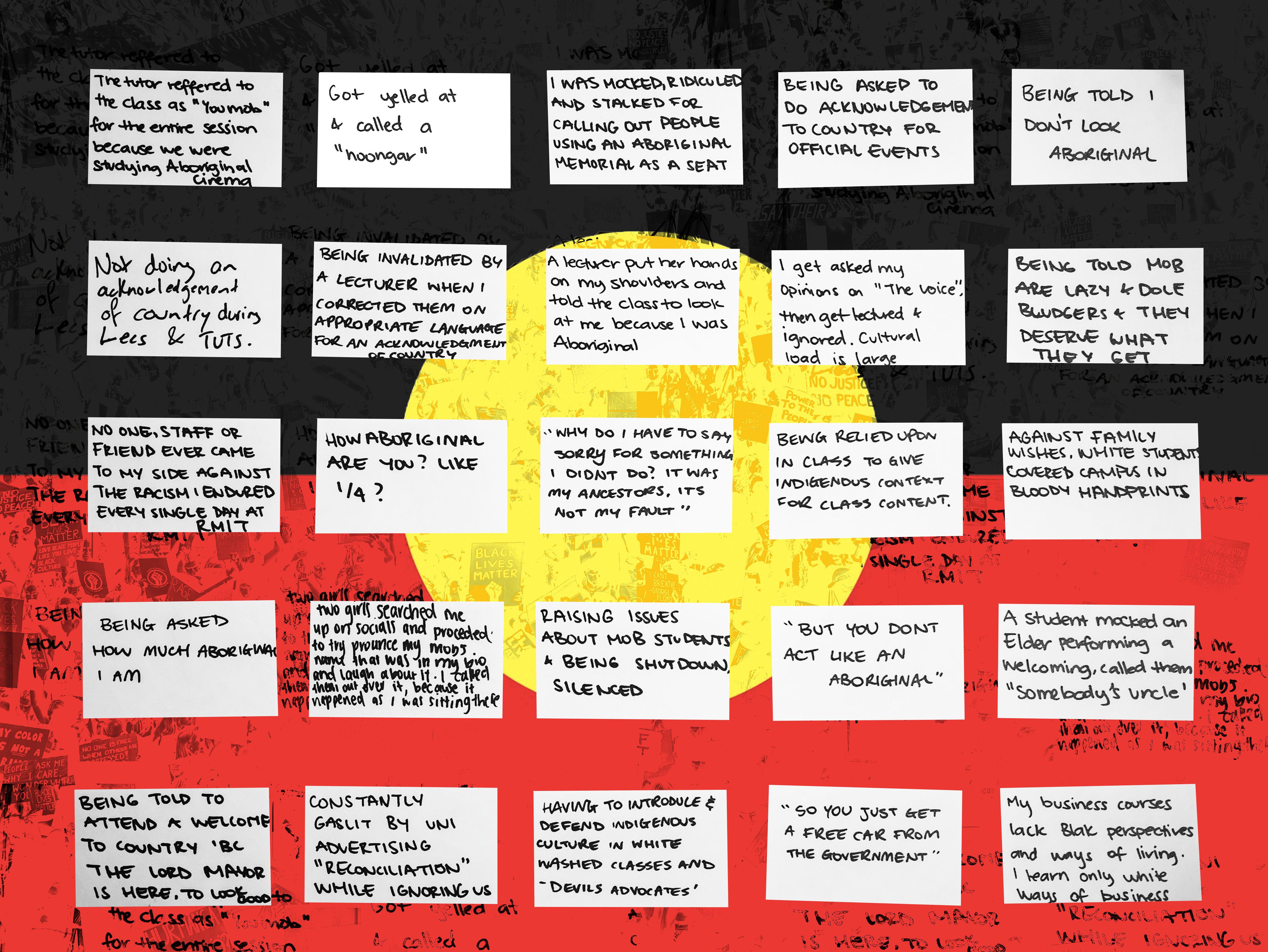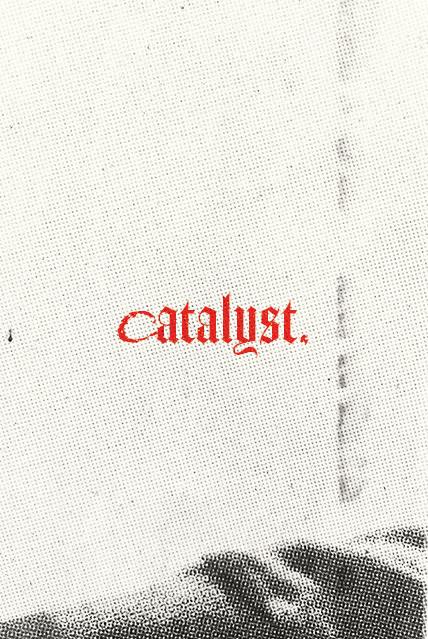
noun: controversy; plural noun: controversies prolonged public disagreement or heated discussion.
It is opposing views, that conflict one another.

CONTROVERSY c. 1

4 Playlist 5 Letter from the editors 7 Acknowledgement to Country 11 We are Black Mirror 13 Courting Controversy: Crisis Management Tips from a Seasoned Boardroom Bitch 17 Painted over You 23 A World without Gender is Possible 25 Don’t defund the arts! 37 Calendar Issue 03 c. 2
Contributions.
Editors:
Olivia Hough
Catalyst Issue 4 2023






































































































































































































































Established in 1944
Contact catalyst@rmit.edu.au
RMIT Media Collective, RMIT City Campus, Building 12, Level 3, Room 97
Printer















Printgraphics Pty Ltd















14 Hardner Road, Mount Waverley, Victoria 3149
Australia

Photographers:
Erina Hoque
Shriya Sudarsan Rao
Jonah Epstein
Mihika Dhule
Charlie Borracci
Designers:
Brianna Simonsen
Vivian Dobbie-Glazier
Charlie Borracci
Mihika Dhule
Sophia Cuthbertson
Soumill Sawmill
Editorial Committee:
Juliette Salom
Stella Thomson
Julianna Rajkowski
Claudia Weiskopf
Ruby Edwards
Alyssa Forato
India Curtain










Ruby Box
Creative Writing Officers:
Juliette Salom
Claudia Weiskopf
Julianna Rajkowski
Mina Wakefield
Entertainment Officers:
Ruby Box
Vivian Dobbie-Glazier
Ruby Edwards
Olivia Hough
Mina Wakefield
Catalyst and RMIT University Student Union acknowledge the people of the Woi wurrung and Boon wurrung language groups of the eastern Kulin Nations on whose unceded lands we conduct the business of the University. RMIT University respectfully acknowledges their Ancestors and Elders, past, present and future.
Catalyst and RMIT University Student Union also acknowledge the Traditional Custodians and their ancestors of the lands and waters across Australia where it contacts its business.

CONTROVERSY c. 3



























































































































































































































Goblin - Tyler, The Creator Calling My Name - Drake No Love - Death Grips WTP - Teyana Taylor Hot Girl (Bodies Bodies Bodies) - Charli XCX 212 - Azealia Banks Your Age - Rina Sawayama Love It If We Made It - The 1975 Treat Me Like A Slut - Kim Petras boythots - daine Hefner - Tana Mongeau Girls In Bikinis - Poppy Deepthroat - cupcakKe Anaconda - Nicki Minaj We Can’t Stop - Miley Cyrus ...Ready For It? - Taylor Swift Bad Girls - M.I.A All The Things She Said - t.A.T.u. I’m Yer Dad - GRLwood Daddy AF - Slayyyter Princess Diana - Ice Spice Racked - Tommy Cash Corpus Christi - Kevin Abstract S.A.D. - Kirin J Callinan Infrared - Pusha T A Cold Freezin’ Night - The Books World Class Sinner/I’m A Freak - Jocelyn I Cannot Fucking Wait Til Morrissey Dies - JPEGMAFIA ART OF WAR (feat. Denzel Curry & Rico Nasty - Jasiah This Is America - Childish Gambino Better Than Revenge (Taylor’s Version) - Taylor Swift If U Seek Amy - Britney Spears Born This Way - Lady Gaga Stars Are Blind - Paris Hilton I Kissed A Girl - Katy Perry This Is Why - Paramore Strangers - Ethel Cain Ultraviolence - Lana Del Rey thank u, next - Ariana Grande Sorry Not Sorry - Tyler, The Creator 6:49 2:10 5:04 2:47 2:37 3:25 2:54 4:13 1:58 2:18 1:45 2:25 3:19 4:20 3:51 3:28 3:48 3:34 2:24 2:32 2:35 3:05 2:52 3:38 2:50 3:22 3:19 1:27 3:06 3:46 3:40 3:37 4:20 3:57 3:00 3:28 5:44 4:11 3:27 3:26 sounds like CONTROVERSY Issue 03 c. 4
We are Delve into the weird this controversial seems,
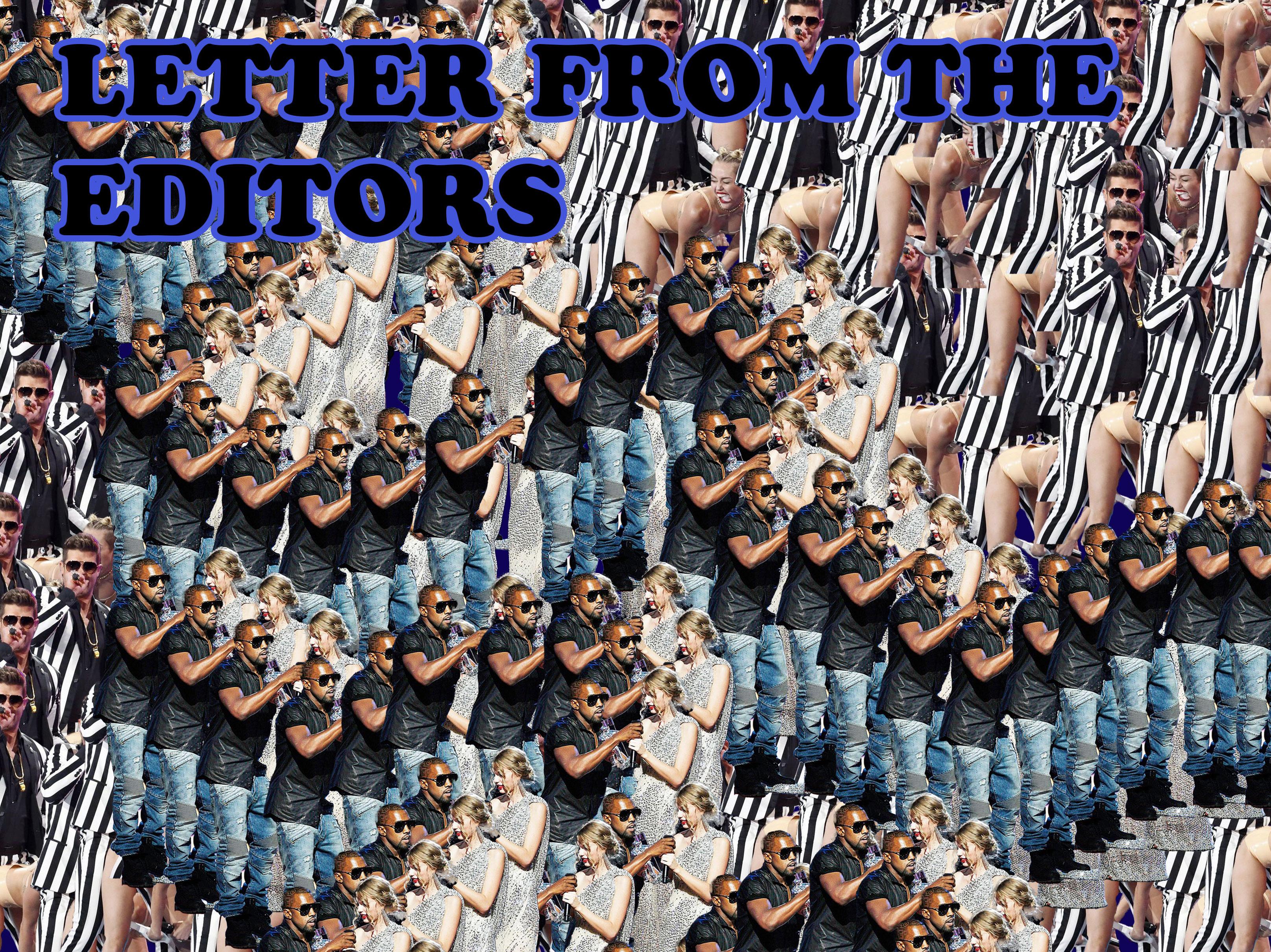
We are Black Mirror
The new season of “Black Mirror” has sparked intense debate and controversy within popular culture circles. Known for its thought-provoking and often dystopian narratives, “Black Mirror” has consistently pushed boundaries and challenged societal norms. This latest season, comprised of six episodes, continues to explore the impact of technology on our lives, but with even more controversial themes and provocative storytelling.
One of the episodes, titled “Digital Dilemma,” delves into the ethical implications of digital consciousness. It presents a future where people can upload their consciousness into a digital realm, enabling them to live on after death. While this concept raises profound questions about the nature of identity, immortality, and the blurring of the boundaries between the physical and digital worlds, it also raises ethical concerns. Should individuals have the right to choose when and how they die? Does the digital afterlife undermine the value of mortality and the human experience?

Another episode, “Reality Rewind,” explores the repercussions of a technology that allows people to manipulate and alter their memories. This episode delves into the dangers of selectively editing one’s memories, raising questions about the authenticity of personal experiences and the potential erasure of uncomfortable or traumatic events. It highlights the slippery slope of relying too heavily on technology to control our perceptions and the potential loss of genuine human connections.

CONTROVERSY c. 11
“Social Score Showdown,” another controversial episode, presents a world where individuals are constantly rated and judged based on their social interactions. This dystopian scenario examines the consequences of a society driven by social media validation, where one’s worth is determined by popularity and conformity. The episode forces viewers to confront the potential dangers of an overly digitized and judgmental society, exploring the loss of privacy and the erosion of individuality.
While some applaud the new season of “Black Mirror” for its continued ability to provoke meaningful discussions about the impact of technology, others argue that it goes too far in its exploration of dark and unsettling themes. Critics argue that the show may perpetuate a pessimistic view of the future, amplifying fears and anxieties surrounding technology rather than inspiring constructive dialogue and solutions.
Nevertheless, the new season of “Black Mirror” undeniably pushes the boundaries of popular culture and invites viewers our increasingly interconnected and technologically driven world. It serves as a stark reminder of the potential dangers that lie ahead if we fail to navigate the ethical and moral challenges posed by rapid technological advancements.
In conclusion, the latest season of “Black Mirror” continues the show’s tradition of sparking controversy and stimulating discussions about the impact of technology on society. Through its thought-provoking narratives, it challenges viewers to critically examine the potential consequences of our digital age, while also raising important ethical and moral questions. Whether you applaud its daring exploration or criticize its dark portrayal, “Black Mirror” remains a powerful force in popular culture, provoking conversations that are essential in shaping our future.
By ChatGPT

Issue 03 c. 12
Prompt given by Olivia Hough
Bitch








CONTROVERSY c. 13
I’ve had someone throw their own shit at me. me.
So an email from someone clumsily attempting to read me the riot act — at least, I So an email read me think that was their original intention — doesn’t really rate for me. By its sixth t for me. si lengthy paragraph, it had come to embody the tenor of a famous dril tweet: “and “and another thing: i’m not mad. please don’t put in the newspaper that i got mad.” i’m please put
Reader, they were seething
The late-night missive was in response to quick and decisive actions I’d taken in -night I’d response to sweeping institutional failure. Real harm had been done to people’s response careers prior to my intervention. Now some had been bloodied in the process y intervention. Now process.

ensuring your sparring par tner wishes to re- engage once the dust has settled. part ner



Sometimes, a direct approach is profoundly inappropriate.

Issue 03 c. 14
Loughlin Patrick
In the midst of the orderly transition hostile takeover of RMIT’s Journalism Society, a close friend awoke to , extraction process was long and lengthy. Not least because I was the one to put it there.
In cases like these, plus unintentional controversies, these, unintentional one’s apology should always be sincere and well- ’s embargo an apology — letting the hurt or betrayal linger — know the discomfor t an undercooked know one can unleash is far greater. At a minimum, is far greate wronged parties deserve basic decency e decenc y.
When apologies have deadlines, basic decency basic decency becomes pretending to demonstrate considered becomes to considered compassion — even if it is not presently sincere. This involves acknowledging the hurt caused (start owledging (sta by striking the word ‘if ’ from your vocabulary) and ing remedy the situation. Perhaps that ’s why I’m always picked to deliver rhaps that’s deliver
I am regularly sought after to deliver harsh truths — personally, professionally, and in between. At one , professionally, and in between. At one job, the time for clear and direc t communication comes following outright user error. In my capacity ollowing erro as student rights advocate, it’s required when a , it ’s student’s rights don’t excuse indefensible behaviour ensible laid out in a misconduct hearing misconduct
The real trick here is avoiding the tempting trap of making false promises to bring the controversy to an making end. Don’t let poor language choices undercut the run free making meaning from nothing. “I’m sorry ” ing meaning from “I’ can always become “I understand”, or “I regret ” can become “it’s regrettable”.
When the professional becomes personal — as such commitments are wont to do — the tightrope




Never promise to avoid a repeat performance; you’ll ormance; never know if an encore later becomes necessary never know an encore later necessa

It is also entirely appropriate to make your dissatisfaction clear
manage people’s expectations s drew the failure of some to deliver into sharp focus. In one case, it was important to meet resulting case back lash from a T V producer without concession, but a empathy — it must be terrifying to learn one is incompetent precisely when competency matters. y matters
Never take criticism from someone you would not take advice from. In another case, community concern were no match against a student newspaper bereft of leadership and unable to furnish deliverables Yet it took umbrage to my request for accountability — umbrage to m or — resulting in that dril-esque email.
The beleaguered publication snuck one last barb into its piece covering my subsequent y subsequent resignation, describing me as ‘busy ’ — complete with inverted commas. The grammatical choice raises a question. Makes a statement. Strikes at a known truth: there’s no such thing as being too busy. If you want s busy.
I’m glad it’s clear my search for time for it had been y for completely and utterly fruitless.
Loughlin Patrick has evolved beyond the need for job titles. He is regularly is regularly forwarded emails on behalf of those who hold the mistaken belief they’ve evolved past the need for him. Loughlin is on for L Instagram and LinkedIn
CONTROVERSY c. 15
Loughlin Patrick


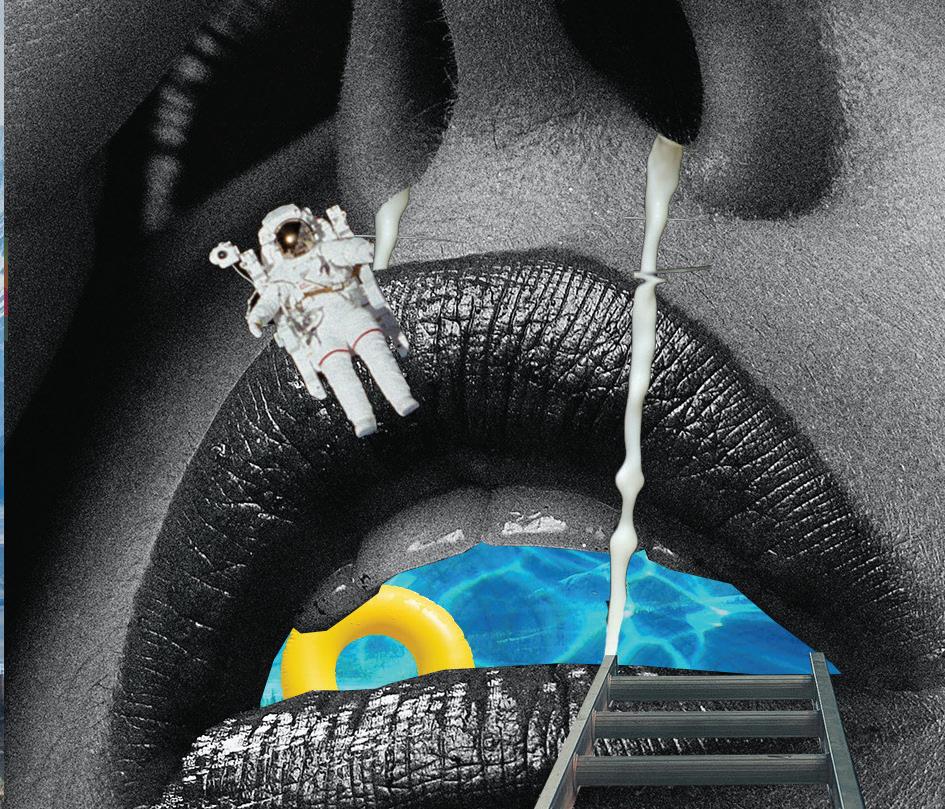


Charlie Borracci Issue 03 c. 16
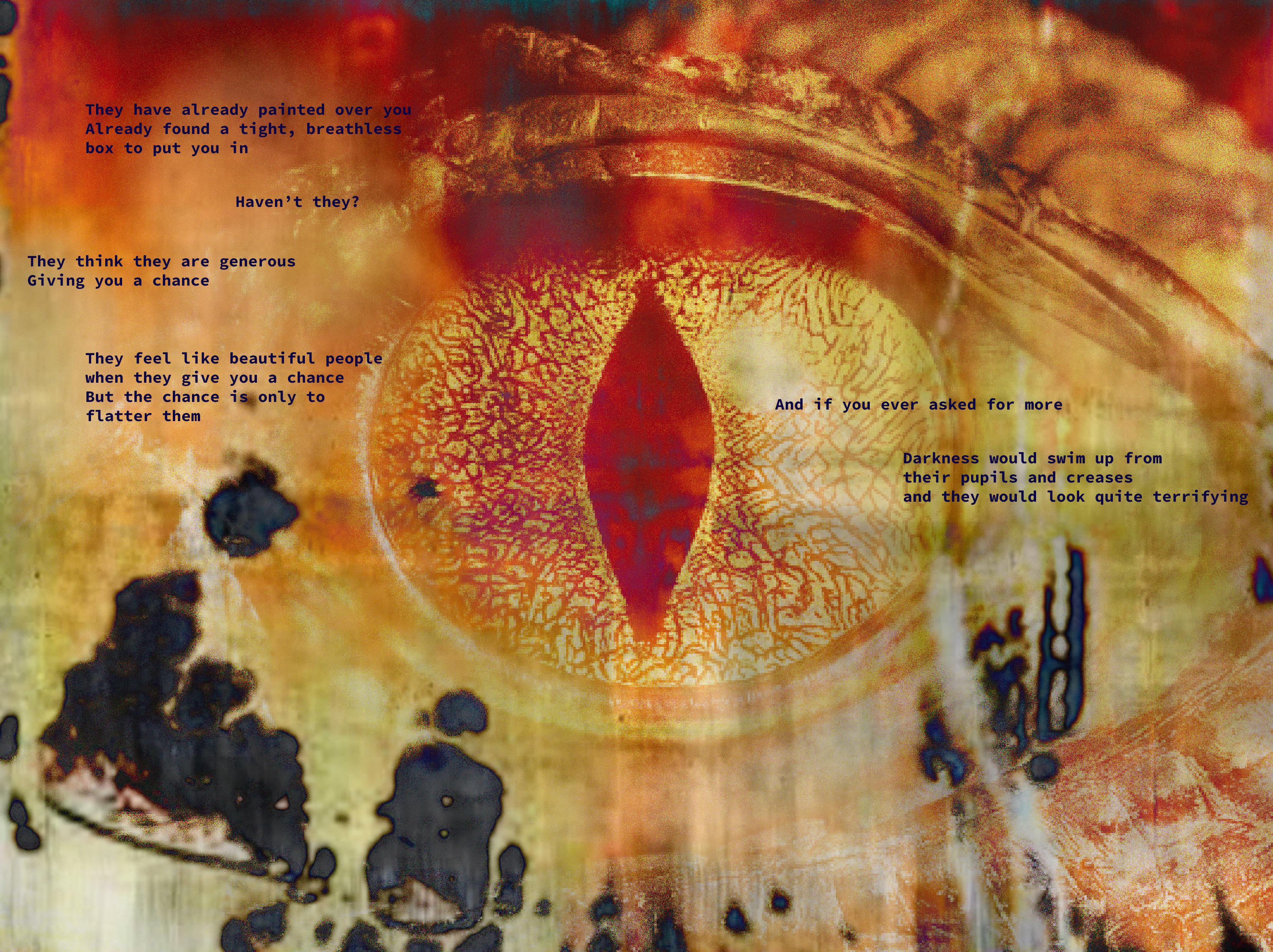
CONTROVERSY c. 17

Issue 03 c. 18
Mimi Gait

Ajarnae Oxford CONTROVERSY c. 19
By AI
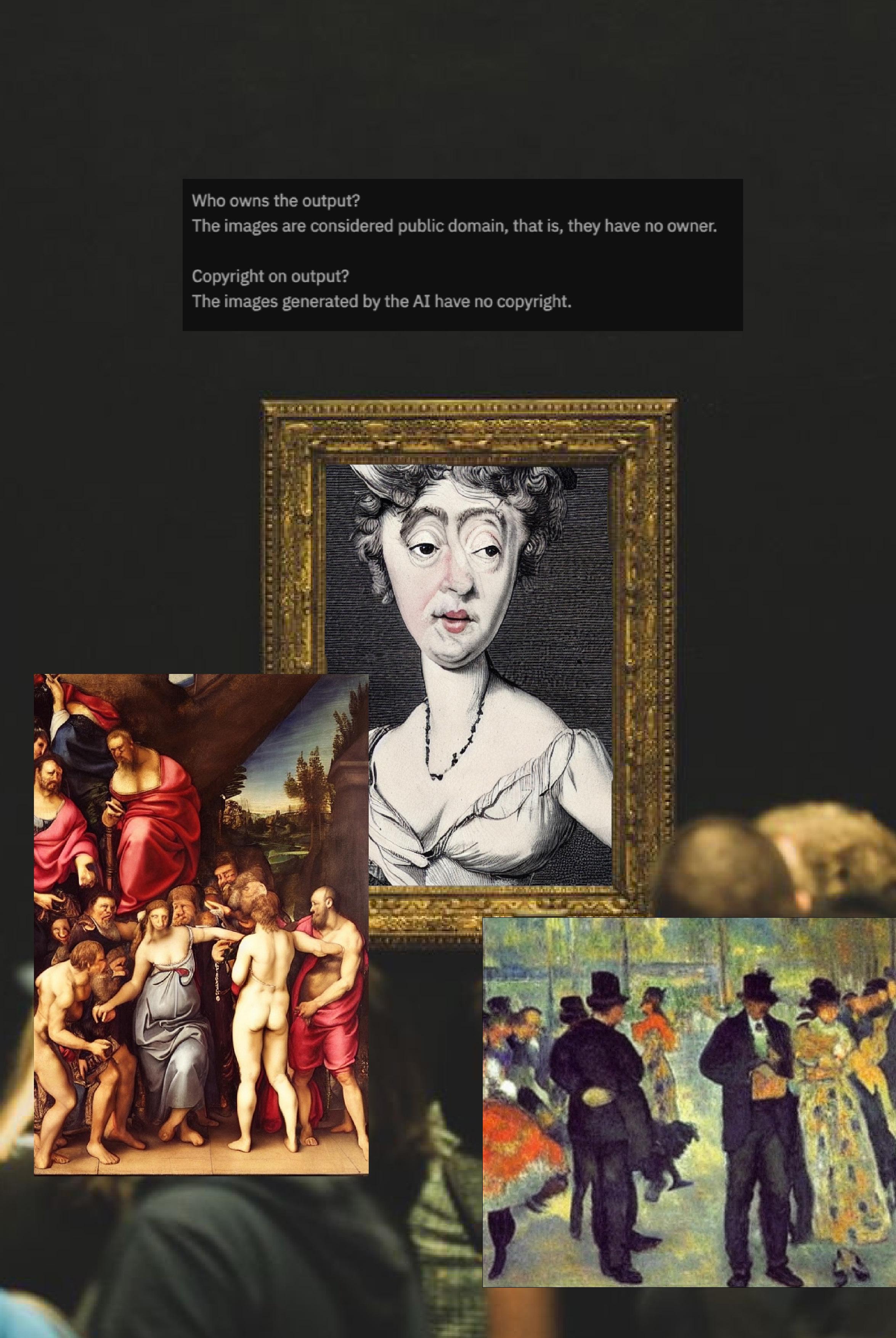
Issue 03 c. 20
Prompt given by Charlie Borracci
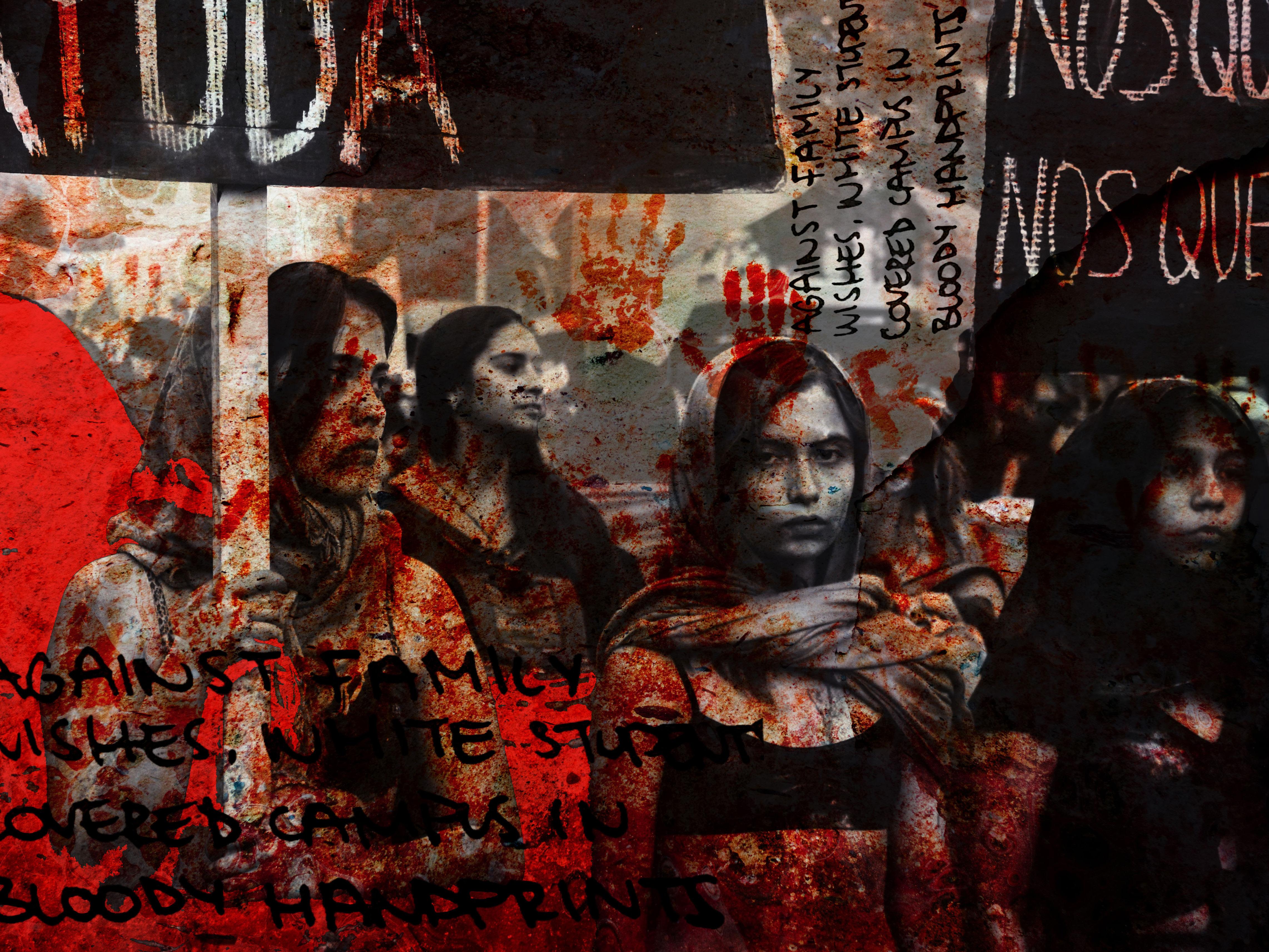
CONTROVERSY c. 21

Soumil Issue 03 c. 22
Gender is a social construct, it is not an eternal or inherent way humans relate to and understand each other. Scientific research debunks the commonly held idea that people of different sexes are physiologically and biologically wired differently. In reality, sex is not a clear-cut binary, but an incredibly diverse spectrum of hormonal, chromosomal and physical variations.

Historical evidence shows that in preclass, egalitarian societies people of all sexes had similar lifestyles and were involved equally in decision-making. Division of work and roles within society depended on a range of factors like age, ability and experience. Even at times, when pregnancy, childbirth and breastfeeding created practical distinctions between people and the work they could do, this differentiation did not create significant social distinctions.
Although just like money or debt, while they are social constructions, we can’t ignore them because they are foundational to how the current world works. Gender is a pervasive social category that subconsciously and overtly impacts every aspect of our life. It impacts what people expect of us, the opportunities open to us and is central to shaping our sense of self-worth and identity.
For women, trans-people and genderdiverse people, gender is an oppressive social category and universally restricts people’s freedom of expression, so why did gender emerge in the first place?
Gender developed over thousands of years, alongside the rise of class society, where a layer of people begin to control the developing surplus. This period saw a shift to activities such as warfare, long-distance travel and heavy agricultural tasks. This coupled with a need for a higher birth rate over time led to roles across sexes becoming more divided.
CONTROVERSY c. 23
Additionally, as a ruling class developed there was also a drive to ensure the paternity of their children was clear in order to pass on responsibility for producing and managing the wealth they controlled. This laid the basis for gendered oppression, in societies like capitalism where control of profit is valued over all else.
The nuclear family and gender roles are fundamental institutions within capitalism. Still today, gender stereotypes that women are naturally caring are needed to justify and normalise the enormous amount of unpaid labour women partake in within the home, which the Australian Bureau of Statistics suggests is equivalent to half of Australia’s GDP. They are needed to justify and normalise the chronic underfunding and low wages in feminised industries, like health care, education and hospitality where women are highly concentrated which maintains a gender pay gap of 13.3%.
History has shown that gains for women and gender-diverse people have been won out of the mass collective action of ordinary people. For example, the sexual liberation movements of the 60s and 70s transformed aspects of domestic life and made things like abortion and divorce more accessible. It was no coincidence that this movement was happening at the same time as heightened working-class militancy and strike rates across the world.
This makes it clear that gender is not an isolated problem but is interconnected with all other oppression required for capitalism to function. Without the capitalist class maintaining and reinforcing gender there is no basis or reason for it to persist. In revolutionary situations, the mass mobilisation of ordinary people takes control of society collectively and the capitalist status quo such as gender oppression falls away, paving the way for a world without gender.

People who ‘deviate’ from the gender binary are often heavily criticised, disregarded and punished through social exclusion and institutional discrimination. In Australia, Trans people are three times more likely to experience depression and around 43 per cent had attempted suicide.
Abolishing gender is therefore not just about educating people and bad attitudes,while important, gender is a structural phenomenon with roots in the underlying economic functioning and social institutions of capitalism, which reinforce it and make it a persistent reality. Additionally, we cannot expect a minority of women or gender-diverse CEOS and politicians to abolish gender as they profit and benefit from the strict gender divide.
We need collective resistance and radical change to get there, which in the here and now looks like supporting every left-wing protest, strike, and struggle against the status quo. It includes getting involved with revolutionary socialist politics to better understand the path to change and better equip yourself with the knowledge to argue that a better world is both necessary and possible.
Issue 03 c. 24
Zavia Lingenti
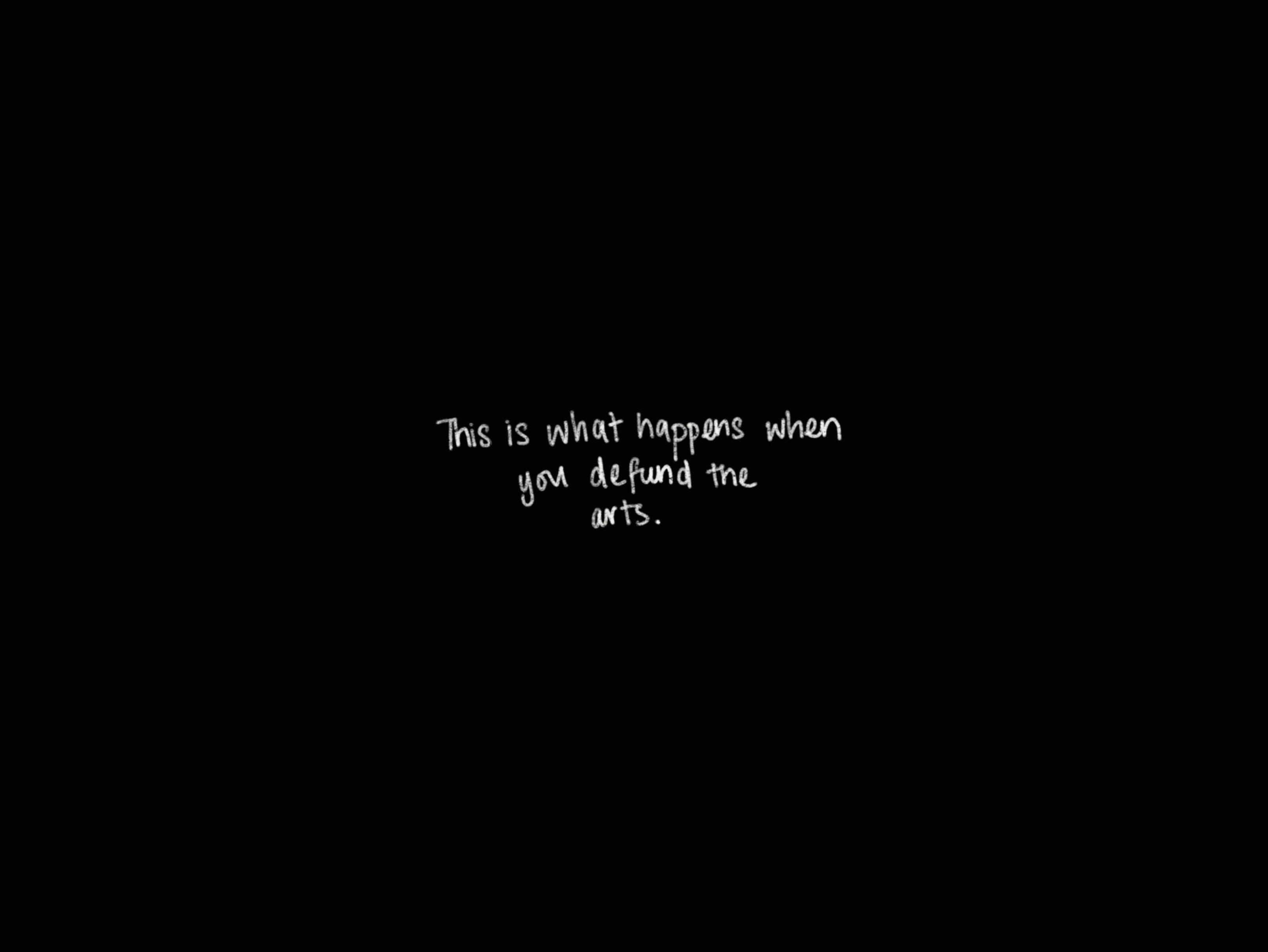
CONTROVERSY c. 25

Issue 03 c. 26
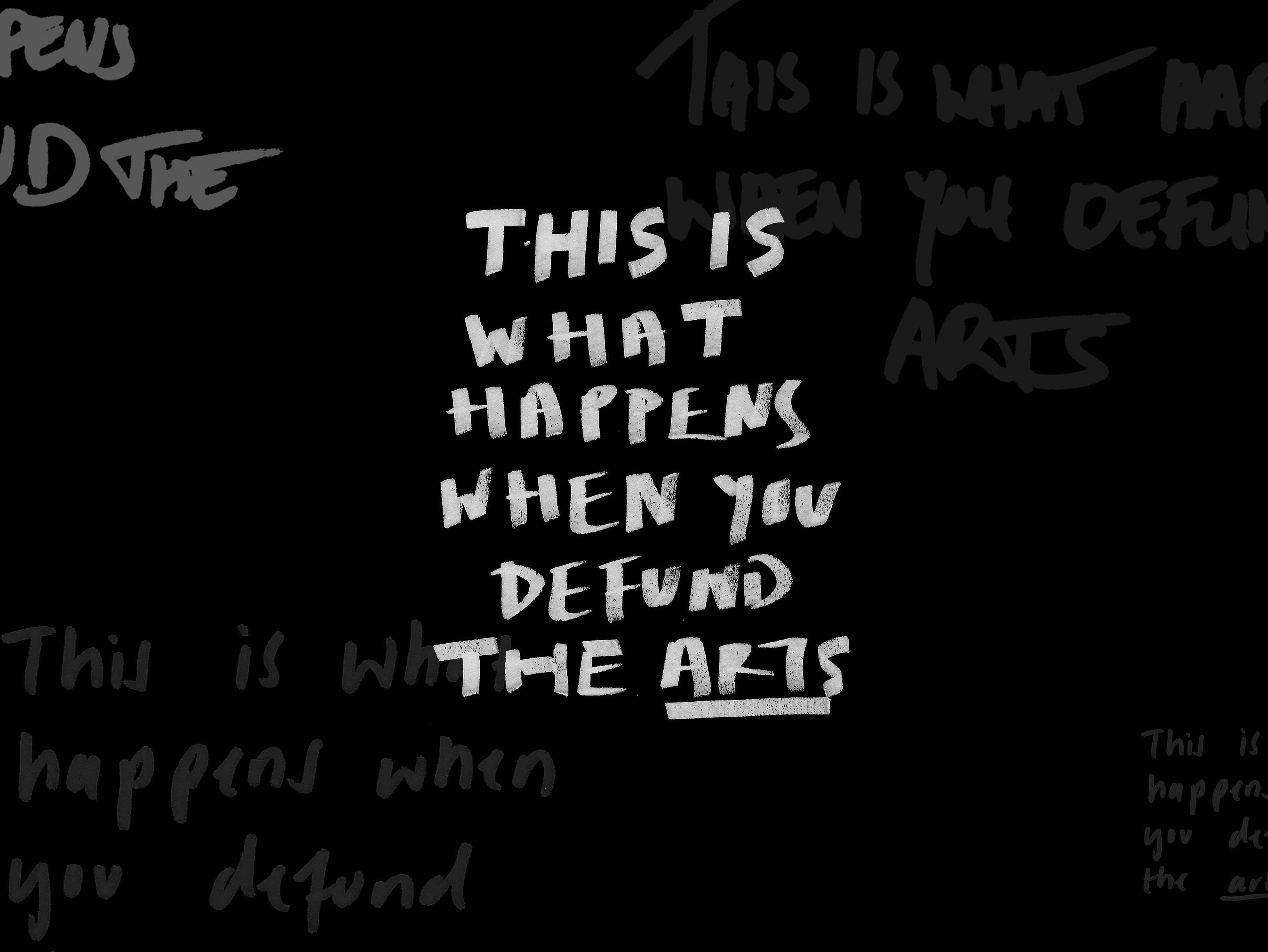
CONTROVERSY c. 27

Issue 03 c. 28

CONTROVERSY c. 29

Issue 03 c. 30
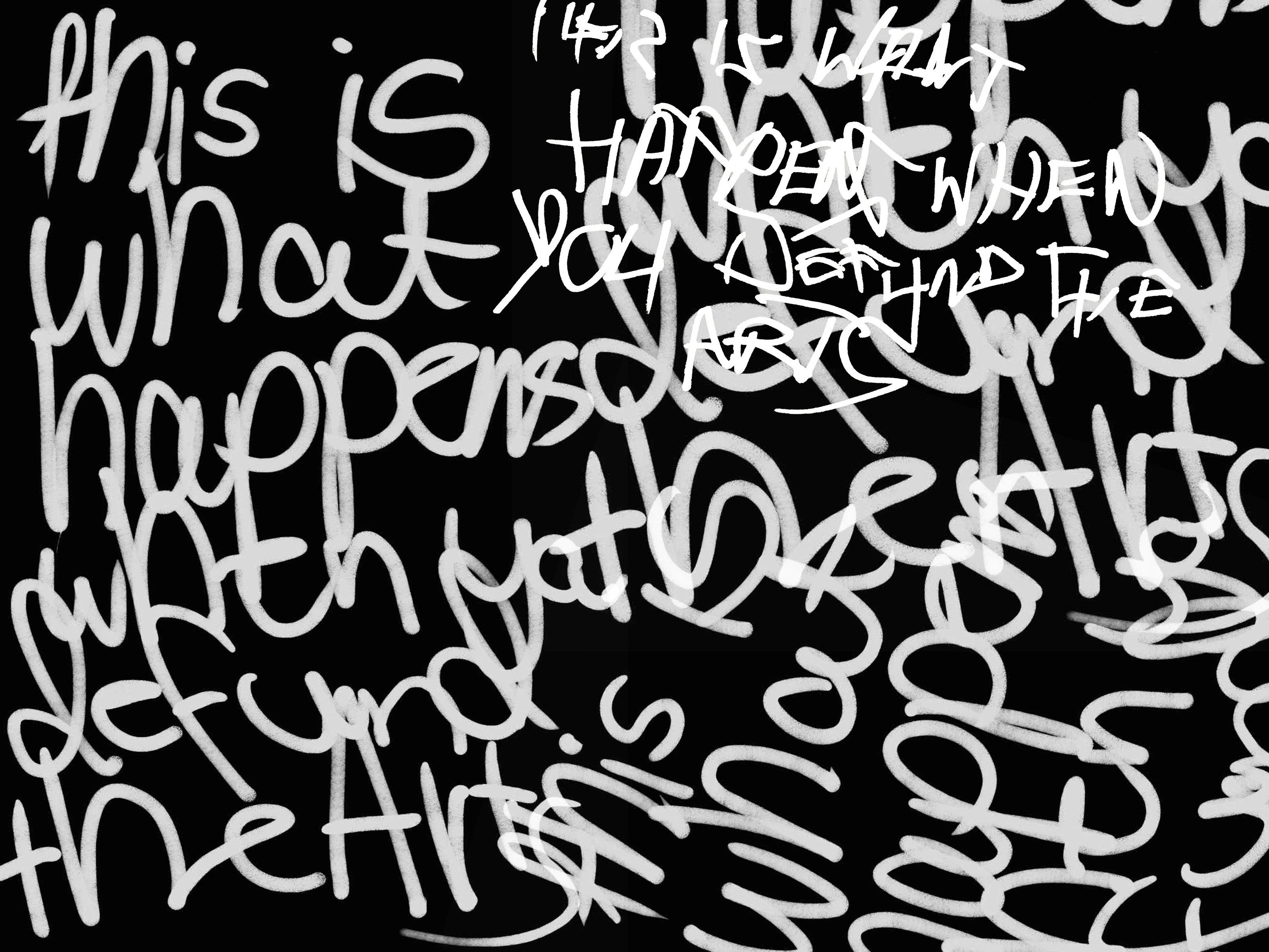
CONTROVERSY c. 31

Issue 03 c. 32

CONTROVERSY c. 33

Issue 03 c. 34

CONTROVERSY c. 35

Issue 03 c. 36
NOTES:

AUGUST. SUN SAT FRI THUR WED TUE MON 1. 6. 7. 8. 9. 10. 11. 5. 13. 14. 15. 16. 17. 18. 12. 20. 21. 22. 23. 24. 25. 19. 26. 27. 28. 29. 30. 31.
3. 4. 2. Barbie MovieRUSU Women’s Club Mixer Pride Mixer Post Grad Event Indian Independence Day Members Drinks CONTROVERSY c. 37
NOTES:

SEPTEMBER.
SUN SAT FRI THUR WED TUE MON 1. 6. 7. 8. 9. 10. 11. 5. 13. 14. 15. 16. 17. 18. 12. 20. 21. 22. 23. 24. 25. 19. 26. 27. 28. 29. 30. 3. 4. 2. Bundoora Vollies Movie Night VE End of Classes Party R U OK? DAY Issue 03 c. 38


















































































































































































































































































































































































































































































































